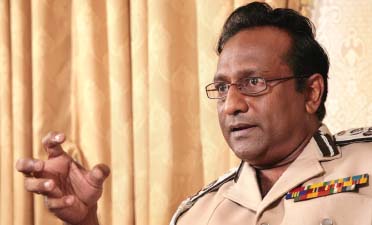
Sri Lankan Minister of Public Security, Rear Admiral Sarath Weerasekara, has called for mandatory military training for those above the age of 18, despite increasing concerns over the intensifying militarisation of the state.
According to The Morning, at the opening event of three police stations, the minister stated that there is an increasing need for the training at military camps to "discipline" its citizens. "The discipline in our country is very bad today," he said. The military camp "is the best place to train them because it has discipline and facilities," he added.
Weerasekara's proposal comes despite credible accusations against all branches of Sri Lanka's military for committing war crimes. The notorious 58 division, an army unit that committed violations of international law during the final military offensive which saw tens of thousands killed of Tamils by state forces, stands accused of committing some of the most egregious crimes. The unit which was headed by accused war criminal Shavendra Silva, who is now the army’s Chief of Staff.
Moroever, Sri Lanka has used the global pandemic to further entrench it's militarisation of the North-East. Since the outbreak, the state has used coronavirus guidelines to intensify it's violence and intimidation of the public, particularly in the North-East. Earlier this month, a Sri Lankan soldier attacked a Tamil youth, in Mullaitivu for allegedly not "wearing a mask" in public.
During the United Nations Human Rights Council's 46th session, UN High Commissioner for Human Rights, Michelle Bachelet, stressed that the growing militarisation of key civilian functions "is encroaching on democratic governance" in her statement on Sri Lanka.
